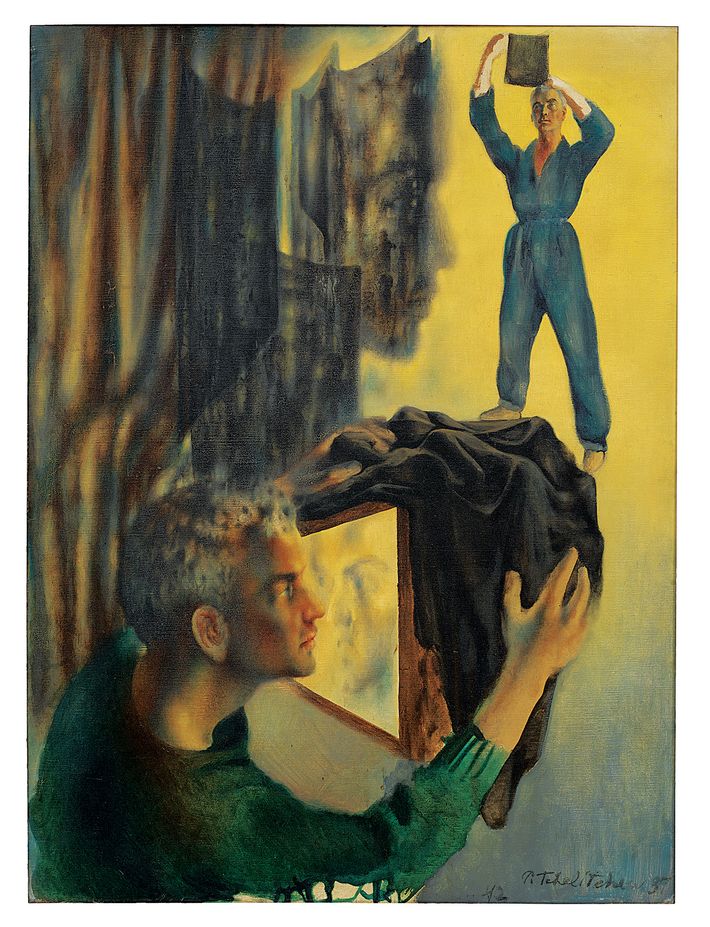Beneath bountiful American skies, an orgy of ferociousness: Bodies crowded onto a wooden panel, painted from above, beg for mercy and are watched with obscene indifference by a mob of white men in colored caps; some carry lead pipes, poles, pistols, bats, or pitchforks. Blood is everywhere. The picture is Paul Cadmus’s Herrin Massacre, commissioned by Life magazine and painted in 1939–40. It’s now riveting viewers in “The Young and Evil,” a great group show organized by critic Jarrett Earnest (one to watch) on the homosexual body in America as rendered by gay and bisexual artists from 1929 to 1957. The actual event pictured was a 1922 massacre of strikebreakers by laborers that left 23 dead in an Illinois mining town. This gripping painting is an atlas of American violence, secular fundamentalism, crazed crowds, execution, martyrdom, the starvation of the spirit, and a complete lack of amazing grace — painted with an obvious sensual attention to the male body. Corporate-American Life never reproduced the picture.
Mouse over or tap the image to read more.
Paul Cadmus, Herrin Massacre, 1940. Columbus Museum of Art, Ohio. Gift of Thomas J. Lord and Robert E. White, Jr., in memory of Arthur and Marie Bell Lord and R. Emmett and Irene Foster White.
“The Young and Evil” at David Zwirner, on view through April 13.
And the Painting the Gallery Attendant Can’t Stop Thinking About
It’s such a beautiful and brave, complicated portrait of one artist by another that I slowly fell in love with it. I like how unfinished parts of it seem not idealized — how the details aren’t that obvious, how you have to step back and take stock to see what’s going on. The great photographer George Platt Lynes is looking into a boxy camera at his own reflection and taking a picture of himself standing in the upper part of the picture, looking at a negative as a bunch of negatives hang to dry all around him. And that haunting, hanging mask form shows how these men were always in the shadows as a group. Not socially but artistically in the shadows, going against the grain. —Reyna Kelly
*This article appears in the March 18, 2019, issue of New York Magazine. Subscribe Now!


